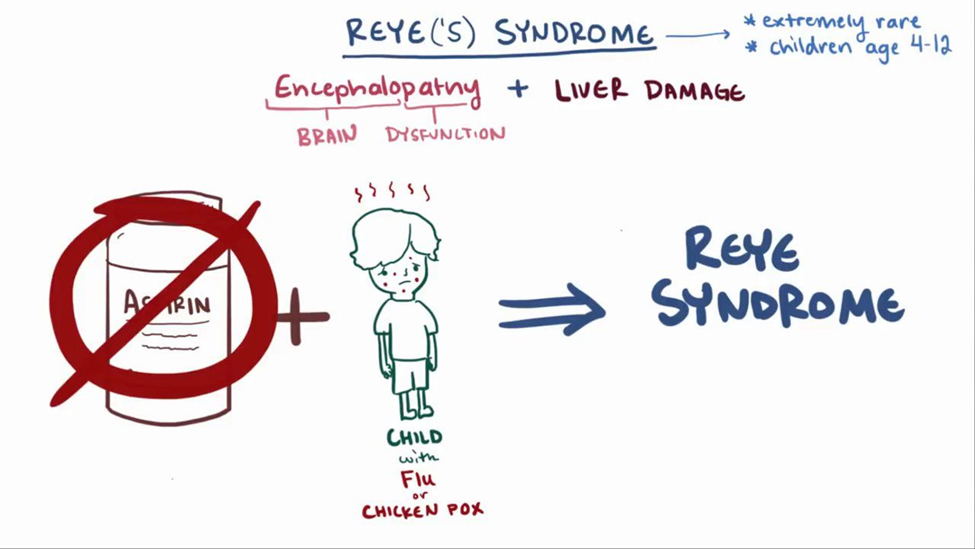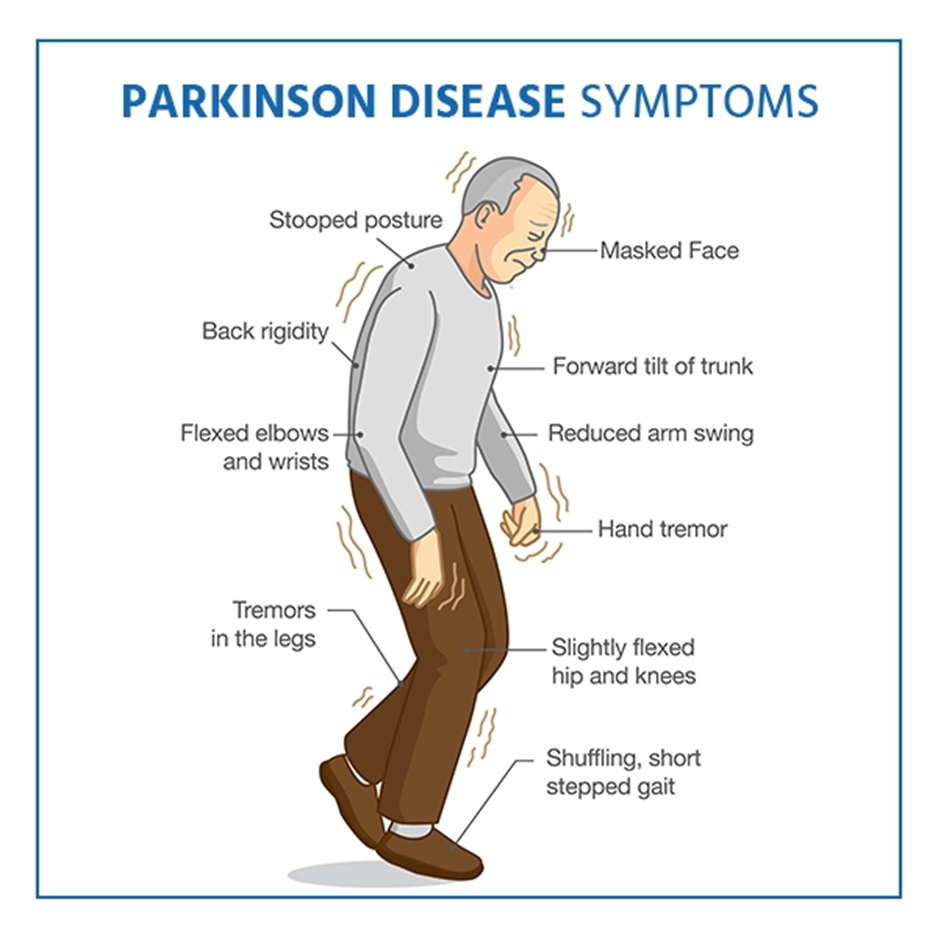A father presents to the emergency department with his 4 year old son. The father explains that his son had a fever, so he gave the child baby aspirin to decrease the fever and it has not worked. What should concern the nurse about a 4 year old receiving aspirin?
Aspirin has the potential to cause gastrointestinal (GI) bleeding in children
Aspirin has the potential to cause hyperglycemia
Aspirin has the potential to cause ringing in the ears in children
Aspirin has the potential to cause Reye's syndrome in children.
The Correct Answer is D
A. Aspirin has the potential to cause gastrointestinal (GI) bleeding in children.
While it is true that aspirin can cause GI bleeding, this is not the primary concern in this scenario. Reye's syndrome, a severe and potentially fatal condition, is the more significant worry when aspirin is given to children with viral infections.
B. Aspirin has the potential to cause hyperglycemia.
Hyperglycemia (high blood sugar) is not a known effect of aspirin in children. Aspirin is not typically associated with glucose metabolism issues.
C. Aspirin has the potential to cause ringing in the ears (tinnitus) in children.
Tinnitus can occur with aspirin use, but it is not the primary concern in this situation. Reye's syndrome is a more serious and immediate risk associated with aspirin use in children with viral infections.
D. Aspirin has the potential to cause Reye's syndrome in children.
This is the correct and most significant concern. Reye's syndrome is a rare but severe condition associated with aspirin use in children during or after viral infections. It affects the liver and brain and can be life-threatening.

Nursing Test Bank
Naxlex Comprehensive Predictor Exams
Related Questions
Correct Answer is ["40"]
Explanation
To calculate the dosage of docusate sodium (Colace) for a 10-year-old child, we need to divide the total amount of medication by the number of doses. The total amount of medication is 120 mg/day, and the number of doses is 3. Therefore, we can use the following formula:
Dosage per dose = Total amount / Number of doses
Dosage per dose = 120 mg / 3
Dosage per dose = 40 mg
The child will receive 40 mg of docusate sodium (Colace) per dose, three times a day.
Correct Answer is A
Explanation
A. Carbidopa-levodopa
The symptoms described, including a shuffling gait, lack of facial expression, and tremors at rest, are characteristic of Parkinson's disease. Carbidopa-levodopa is a common medication used in the management of Parkinson's disease.
B. Donepezil
Donepezil is used in the treatment of Alzheimer's disease, a condition characterized by cognitive decline and memory impairment. It is not indicated for Parkinson's disease.
C. Rivastigmine
Rivastigmine is another medication used in the treatment of Alzheimer's disease, and it is also used in Parkinson's disease dementia. However, it is not the primary medication for the motor symptoms of Parkinson's disease.
D. Tacrine
Tacrine was once used in the treatment of Alzheimer's disease, but it is no longer commonly prescribed due to safety concerns and the availability of newer, safer medications. It is not indicated for Parkinson's disease.

Whether you are a student looking to ace your exams or a practicing nurse seeking to enhance your expertise , our nursing education contents will empower you with the confidence and competence to make a difference in the lives of patients and become a respected leader in the healthcare field.
Visit Naxlex, invest in your future and unlock endless possibilities with our unparalleled nursing education contents today
Report Wrong Answer on the Current Question
Do you disagree with the answer? If yes, what is your expected answer? Explain.
Kindly be descriptive with the issue you are facing.
